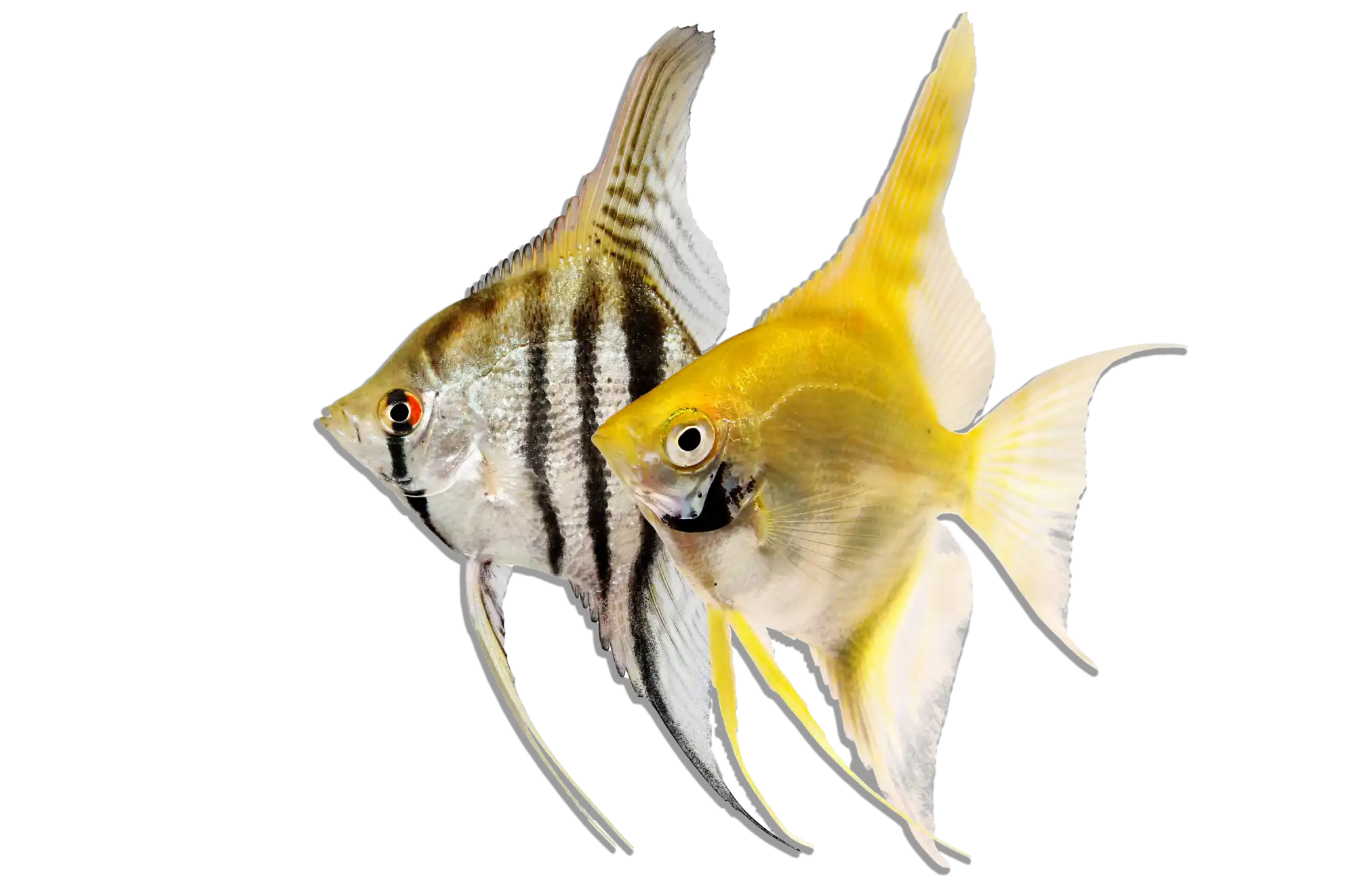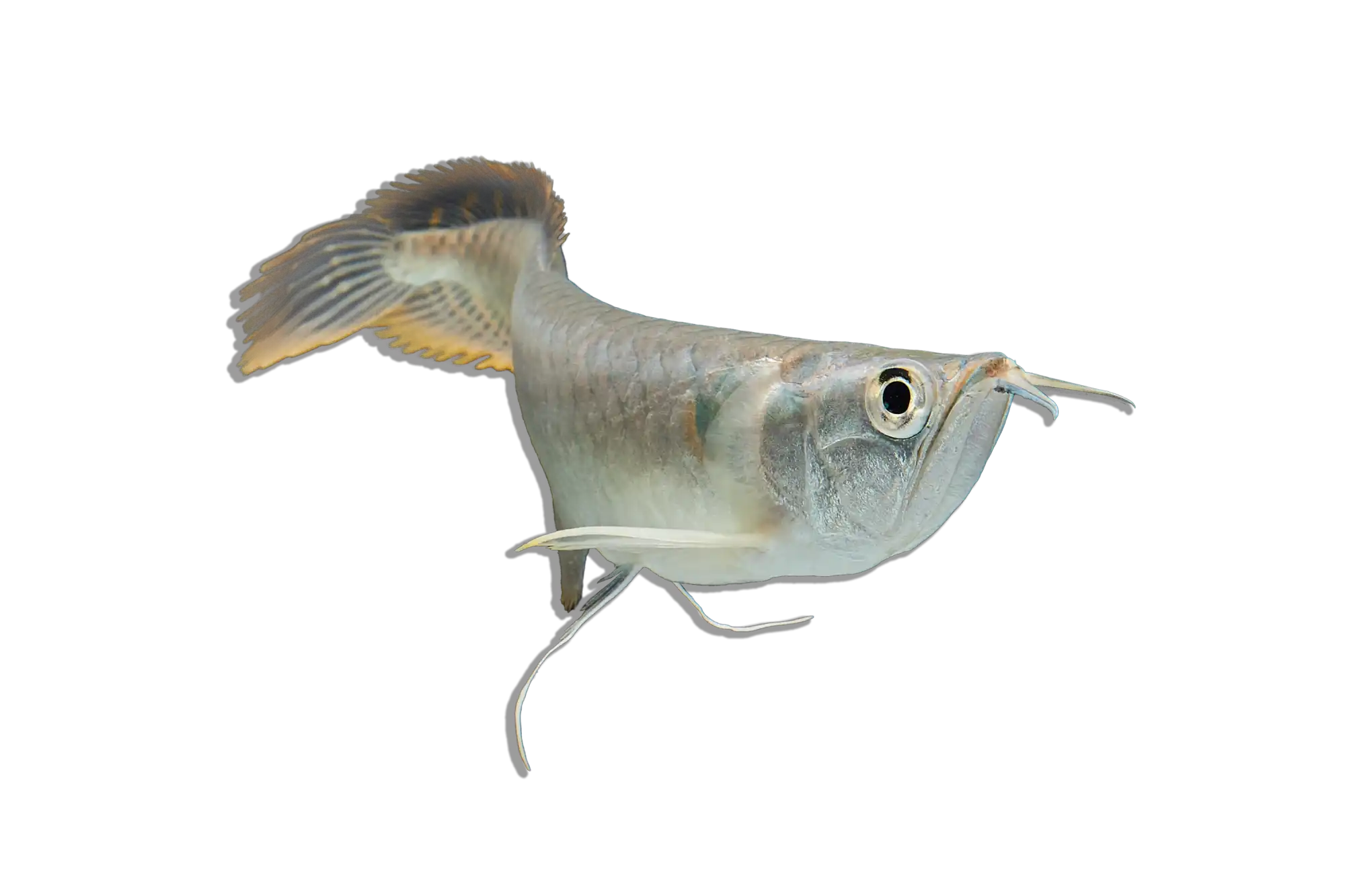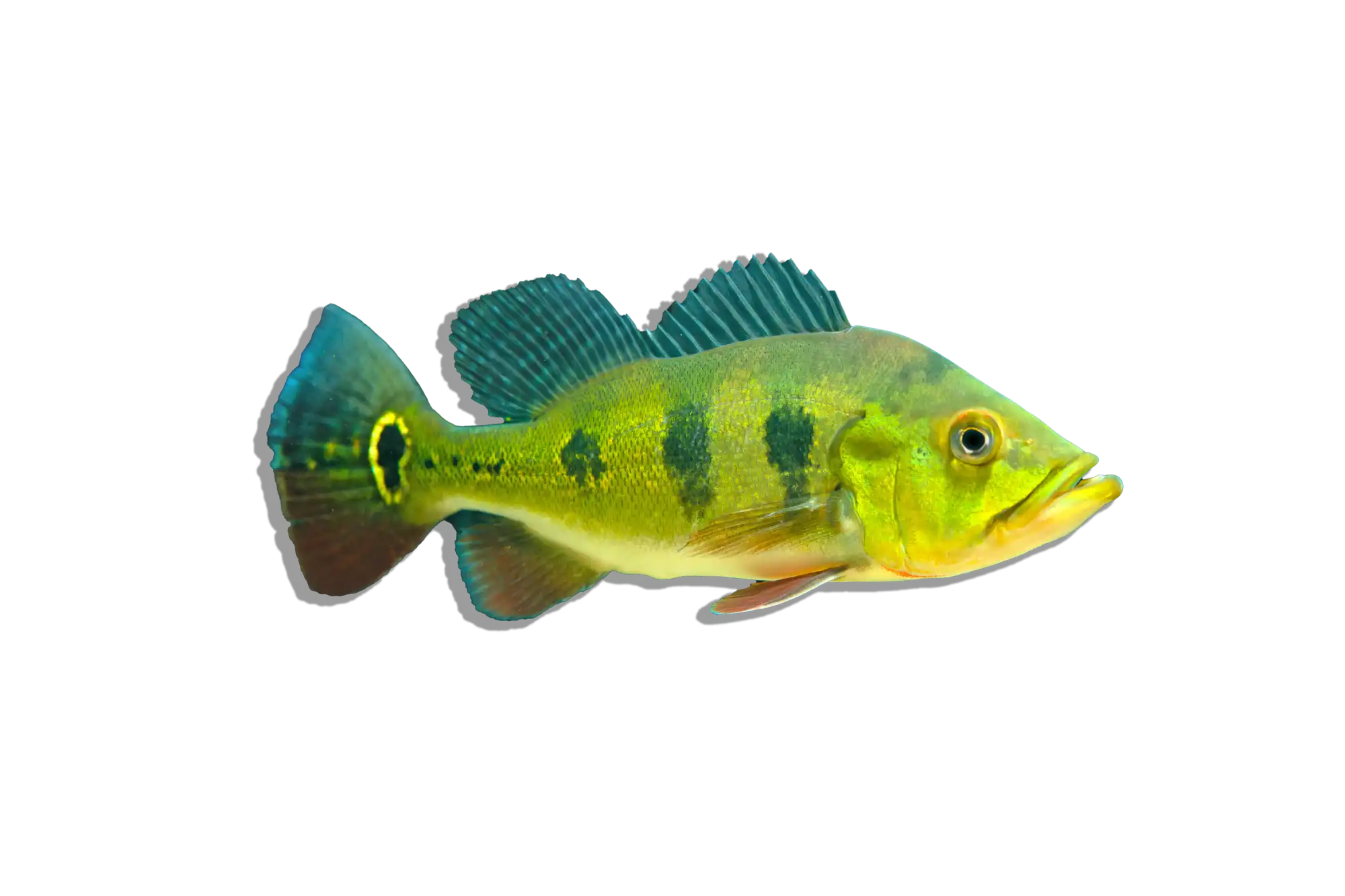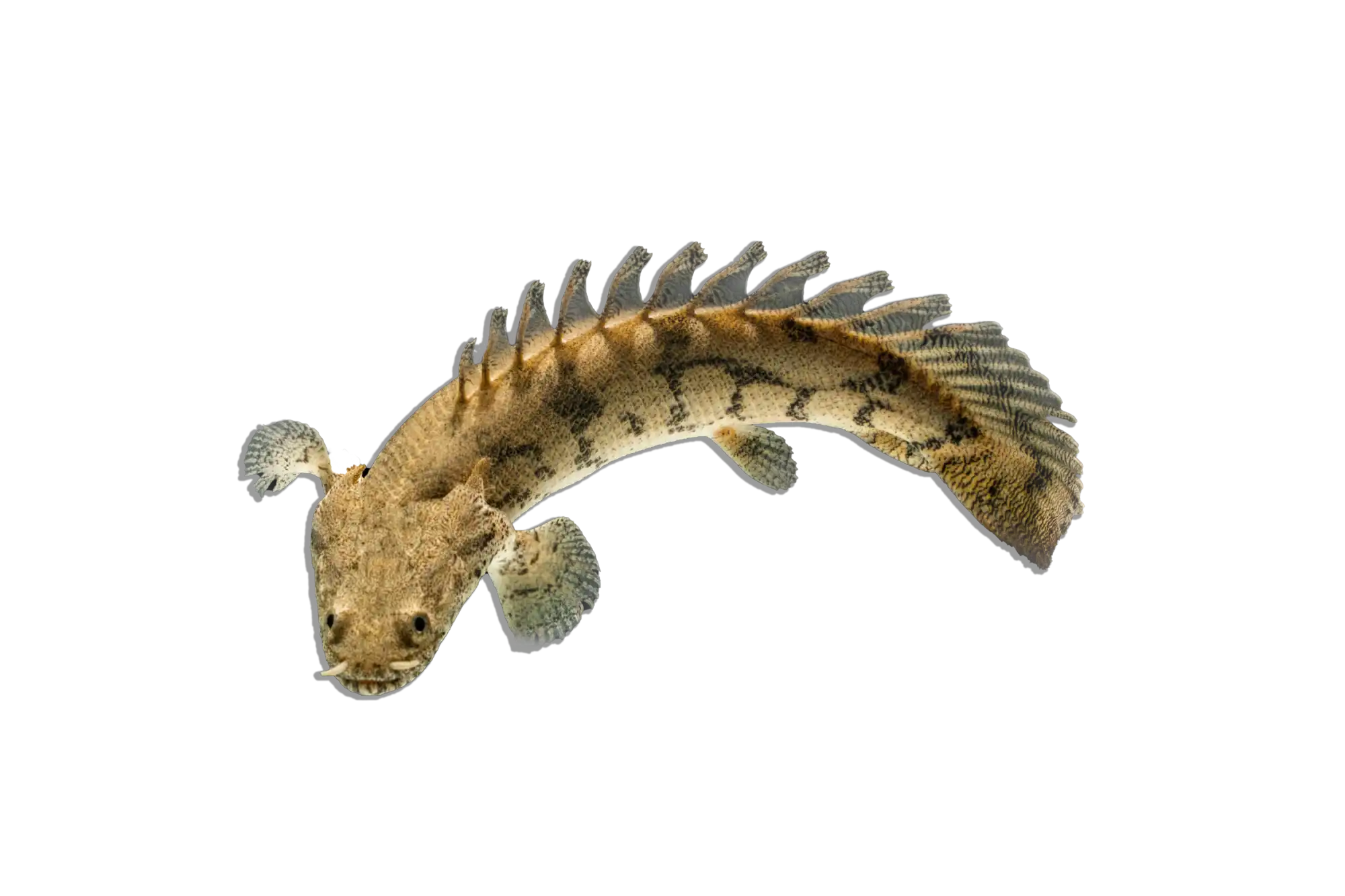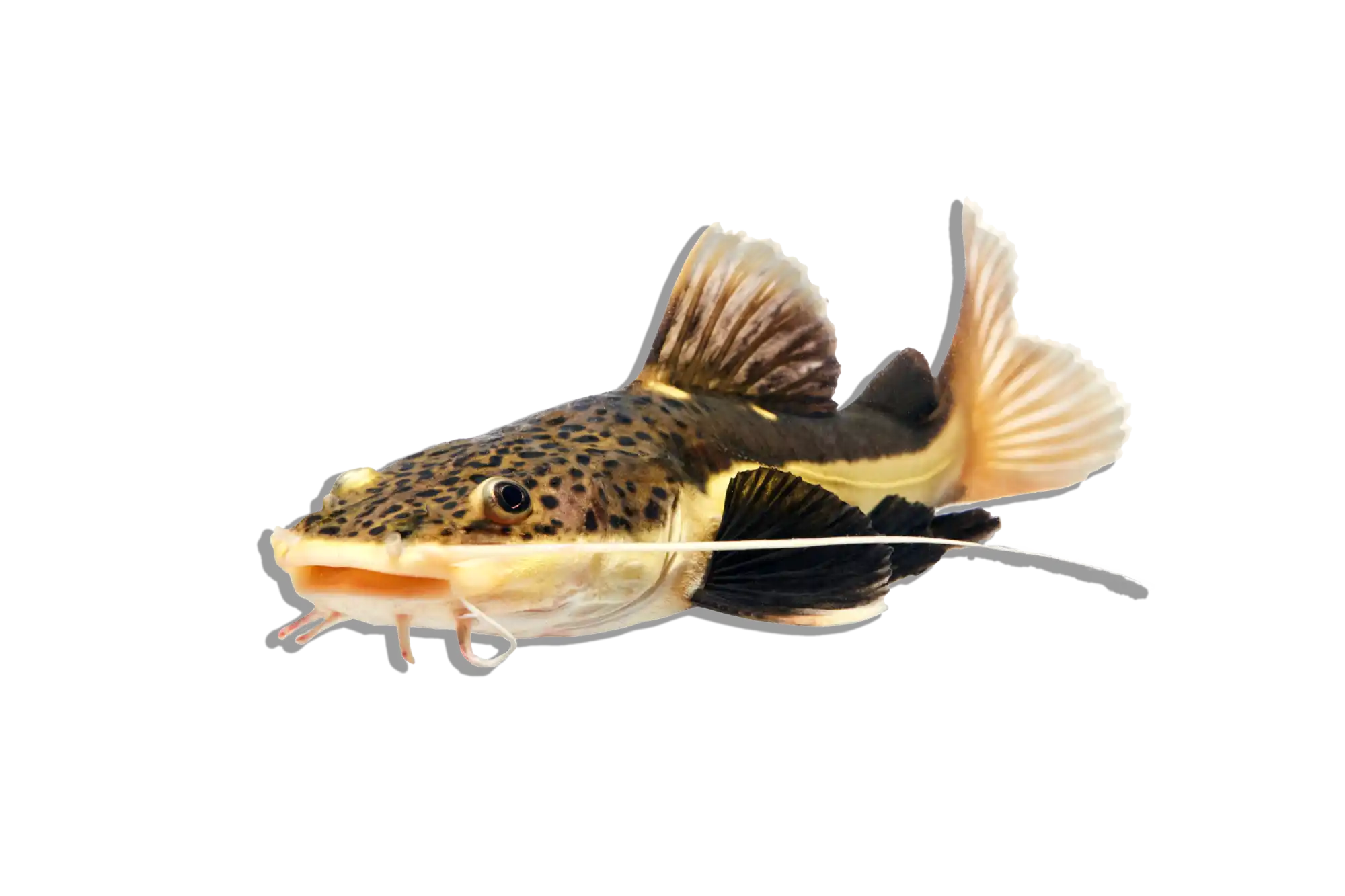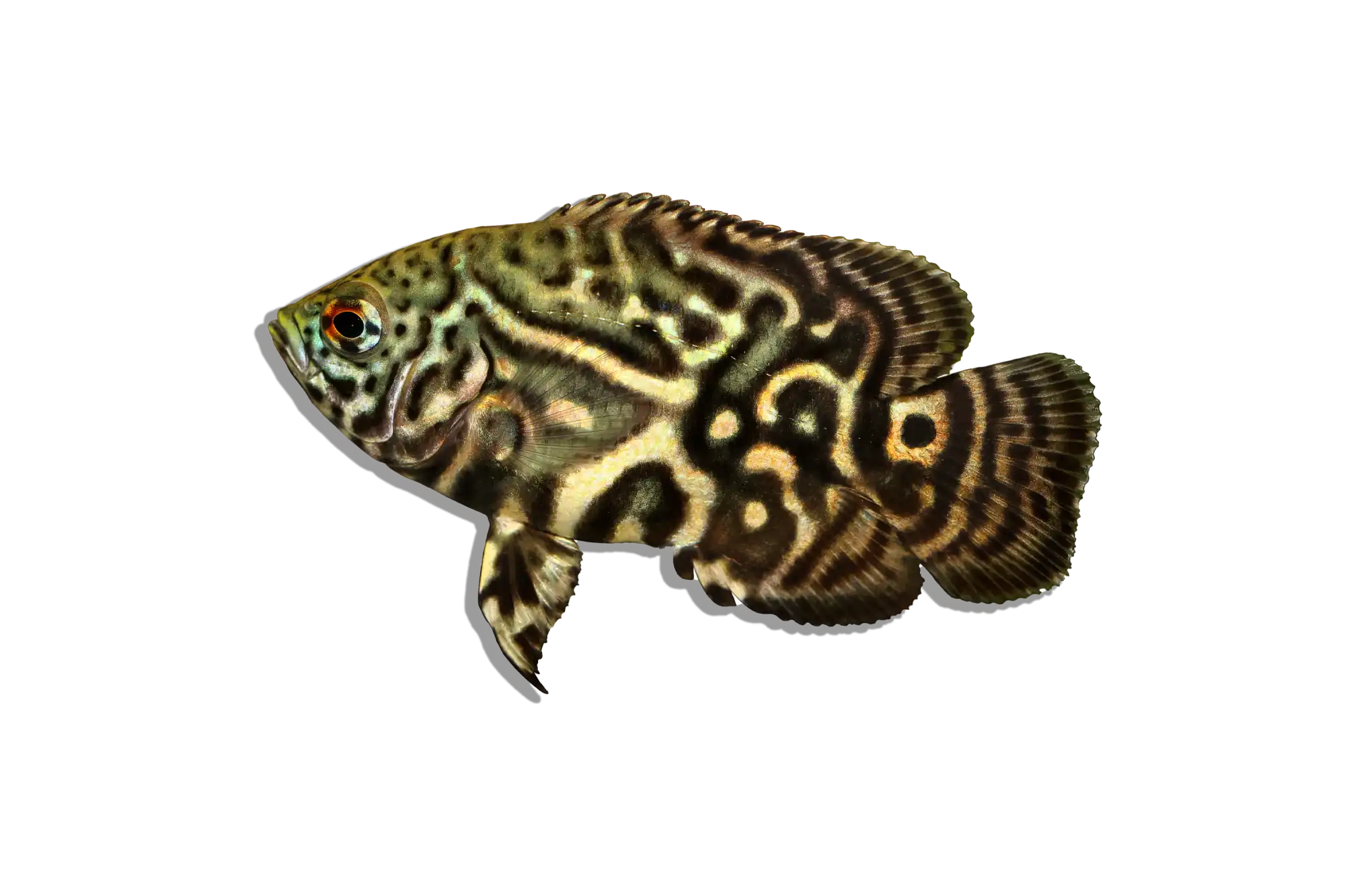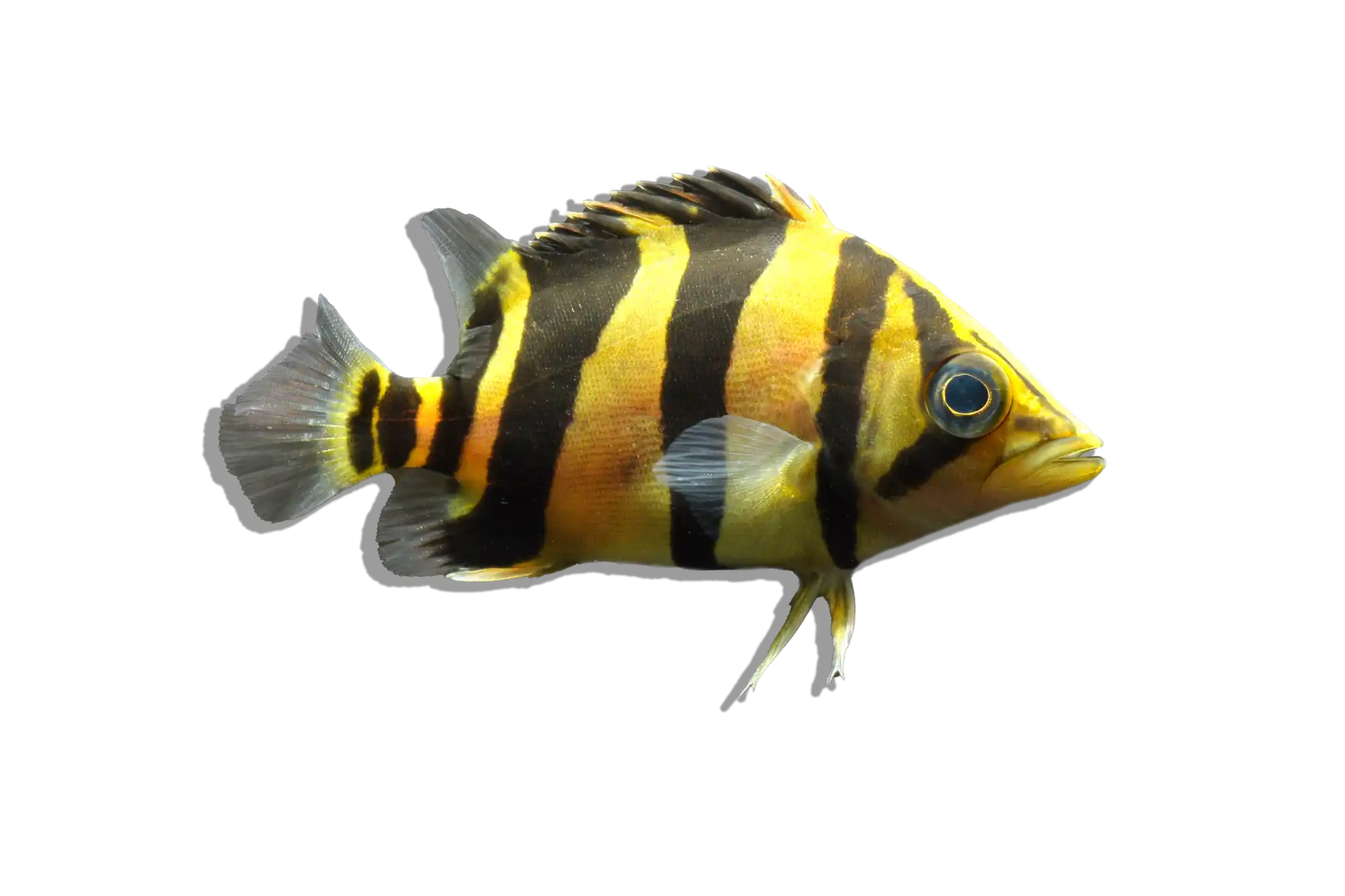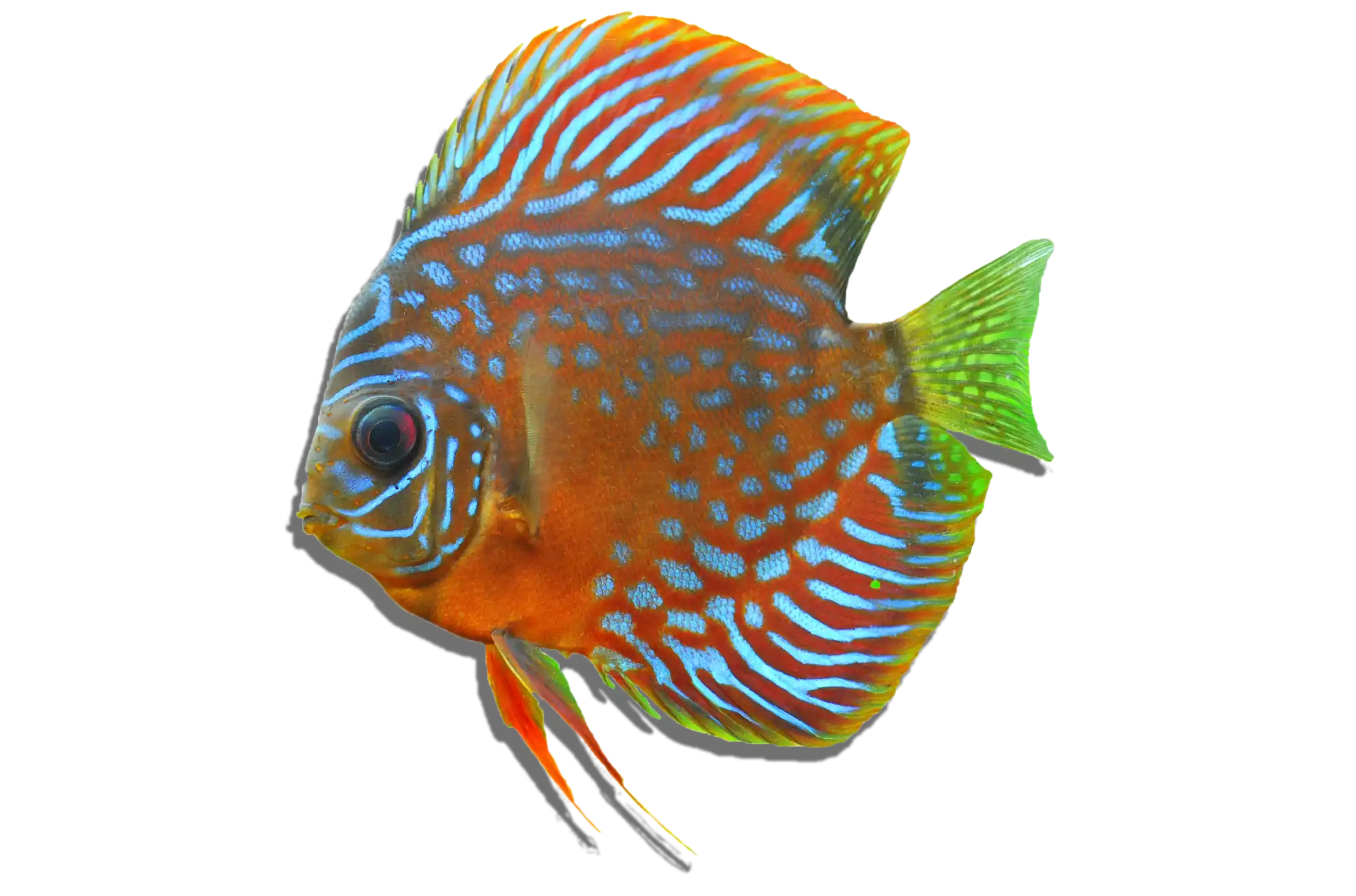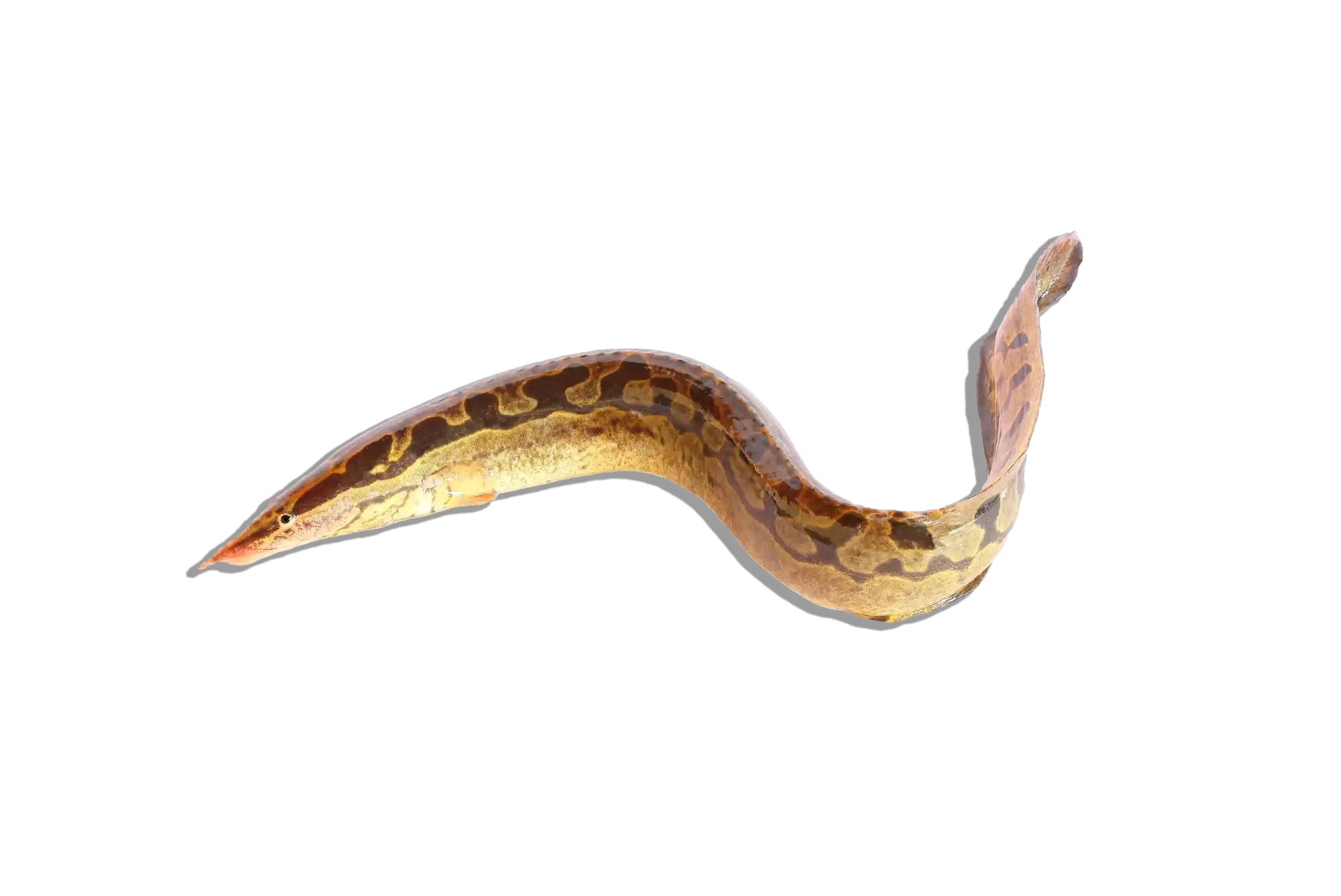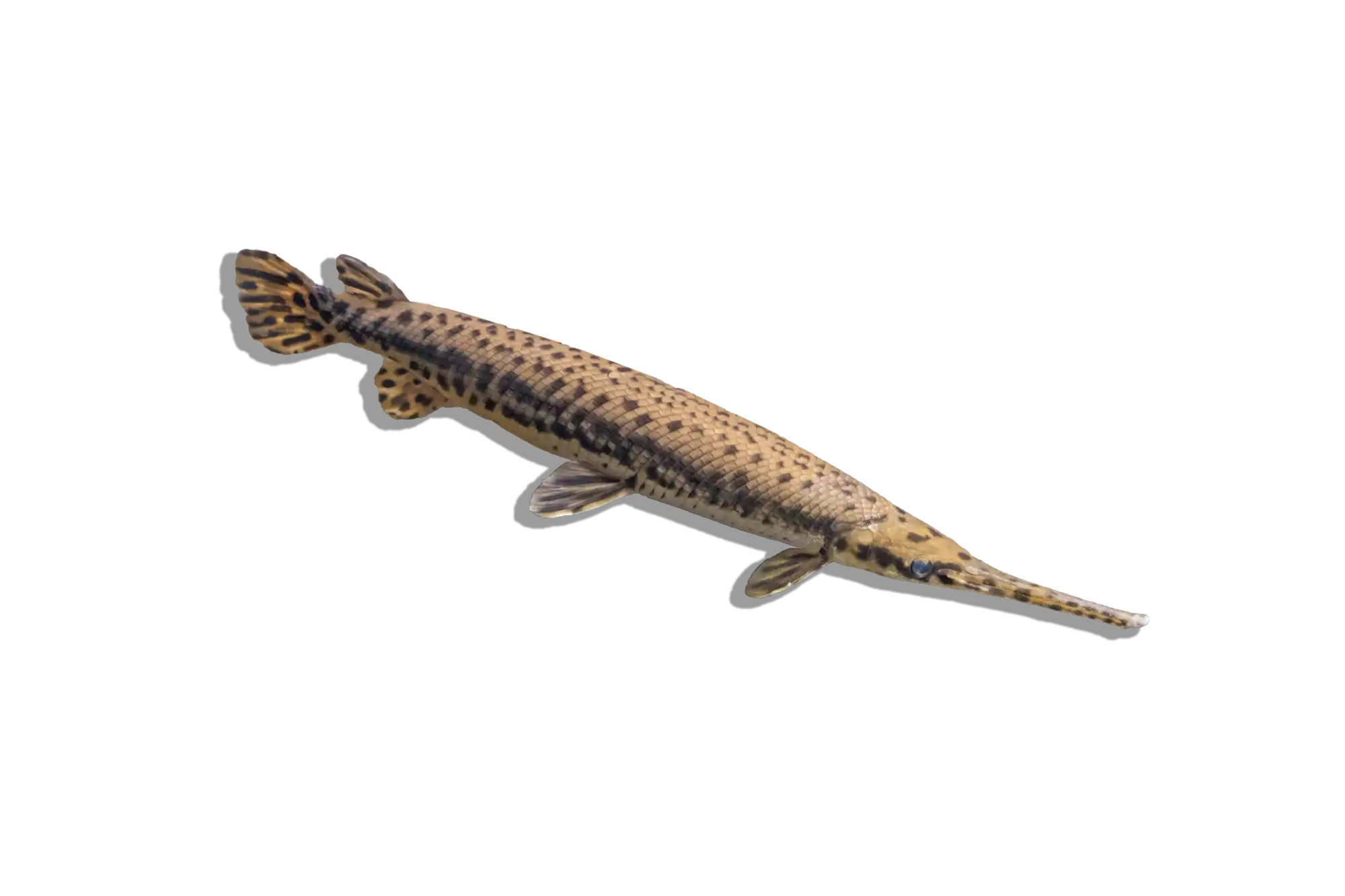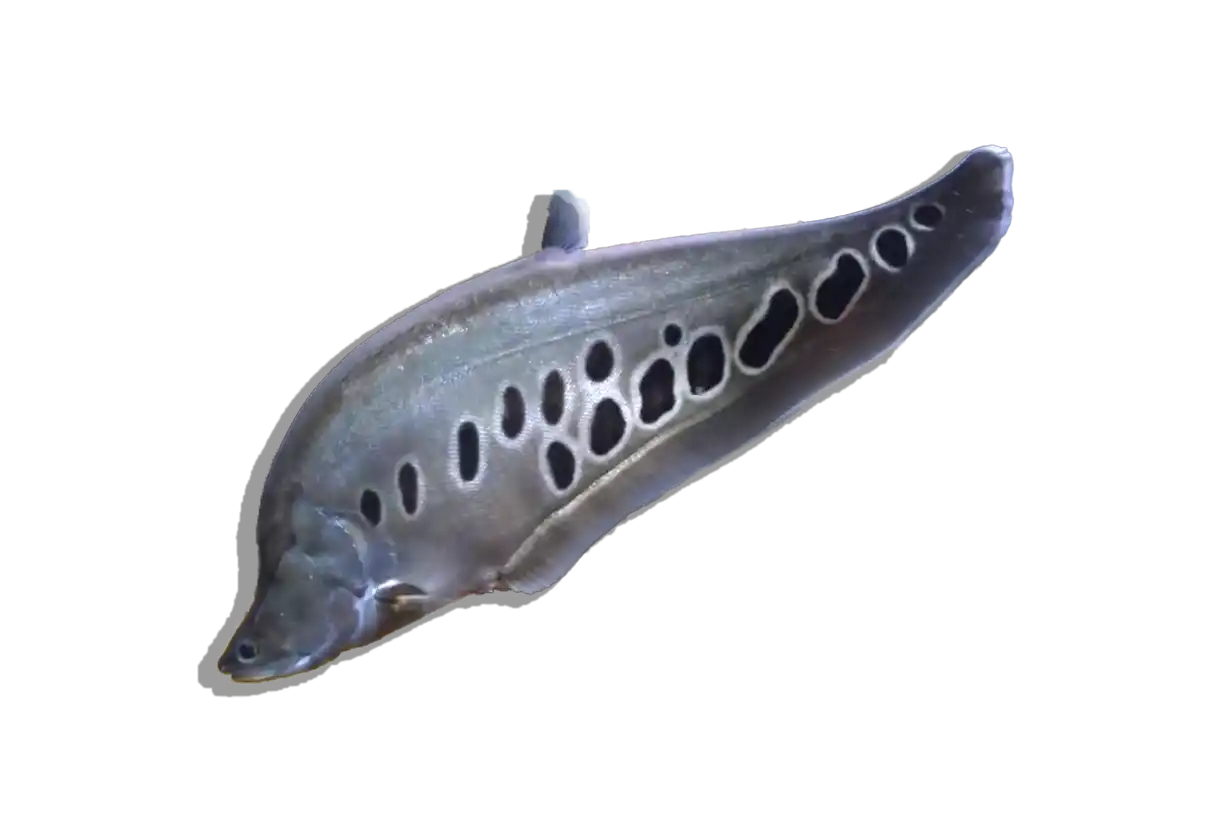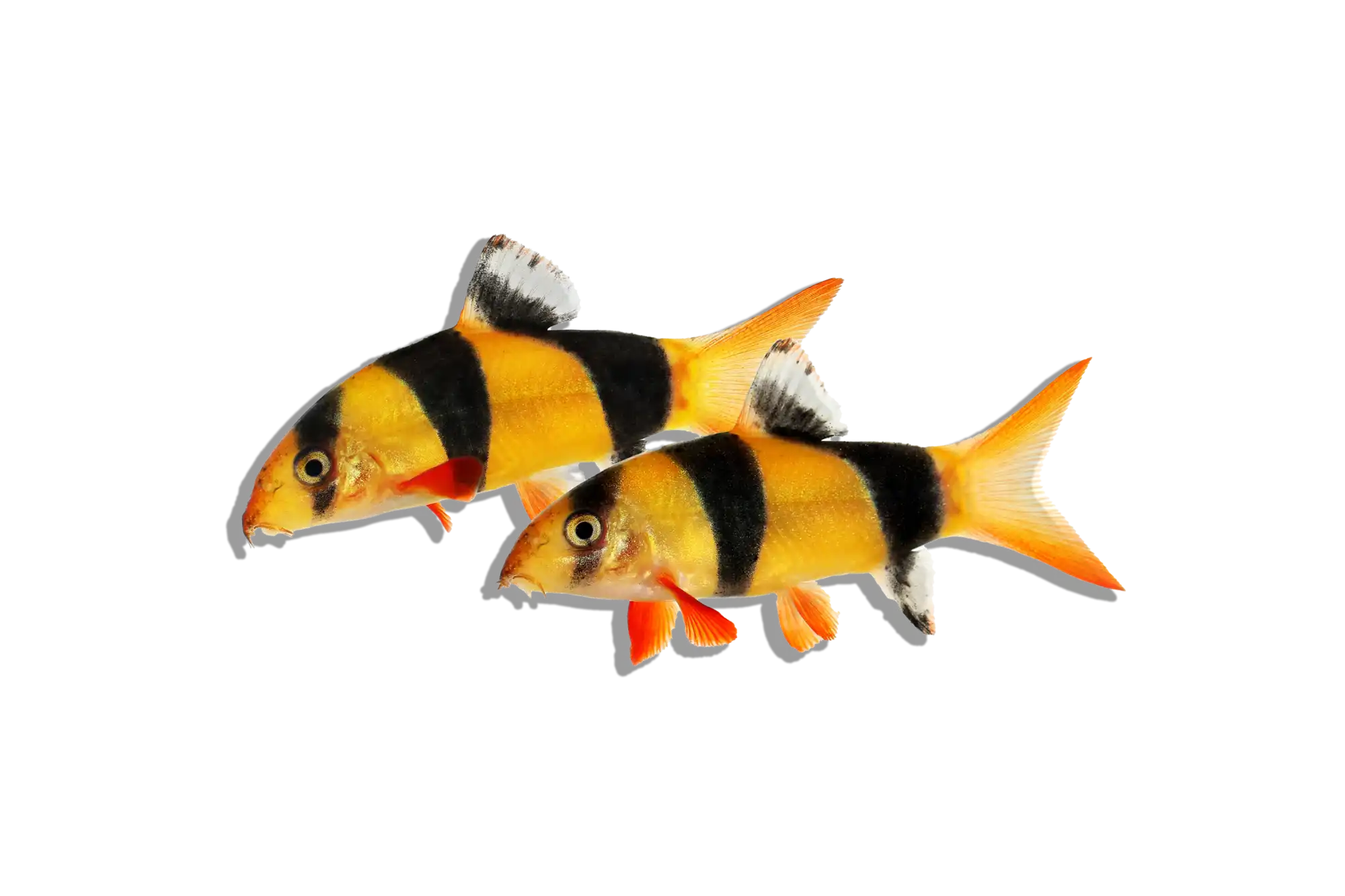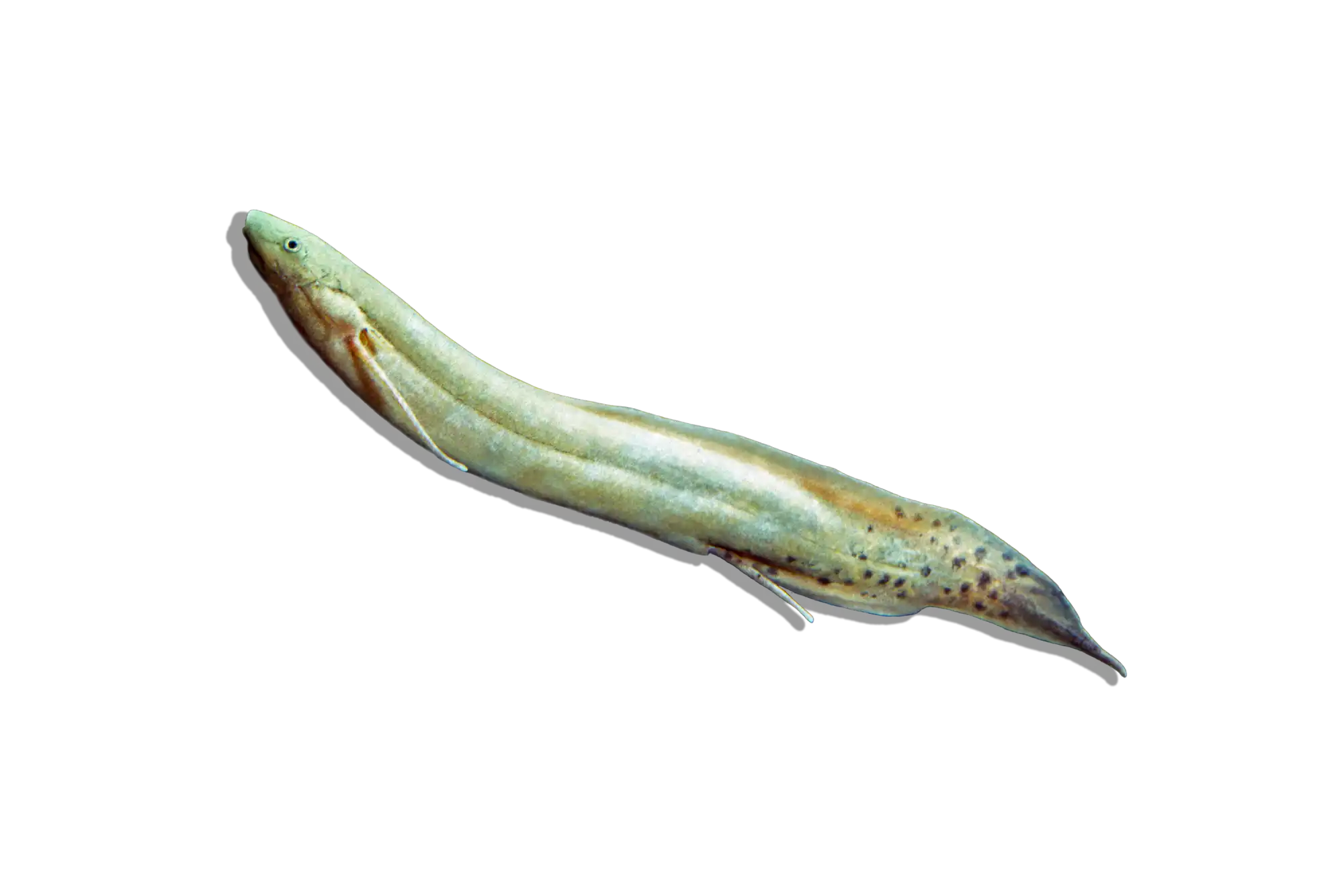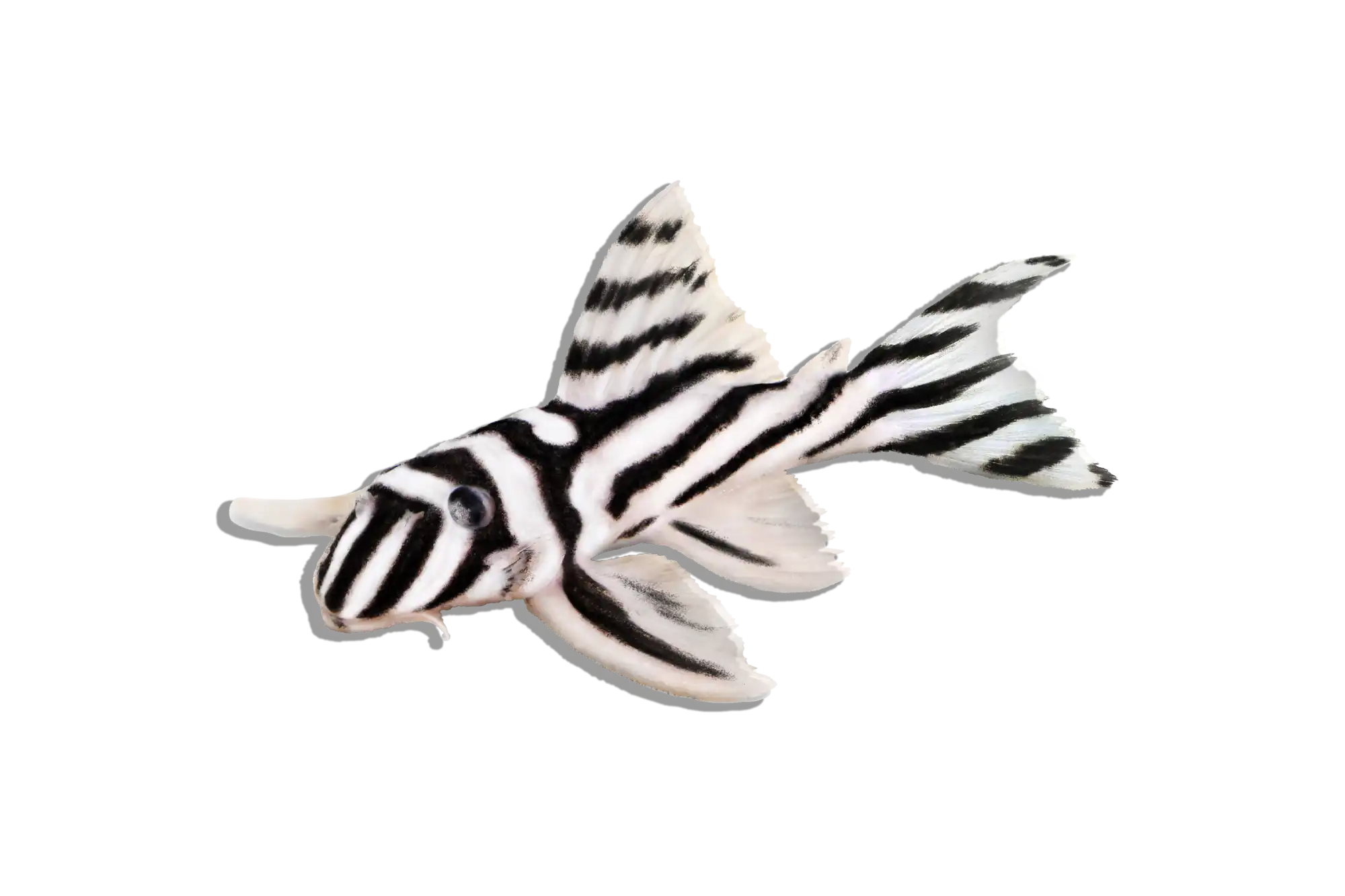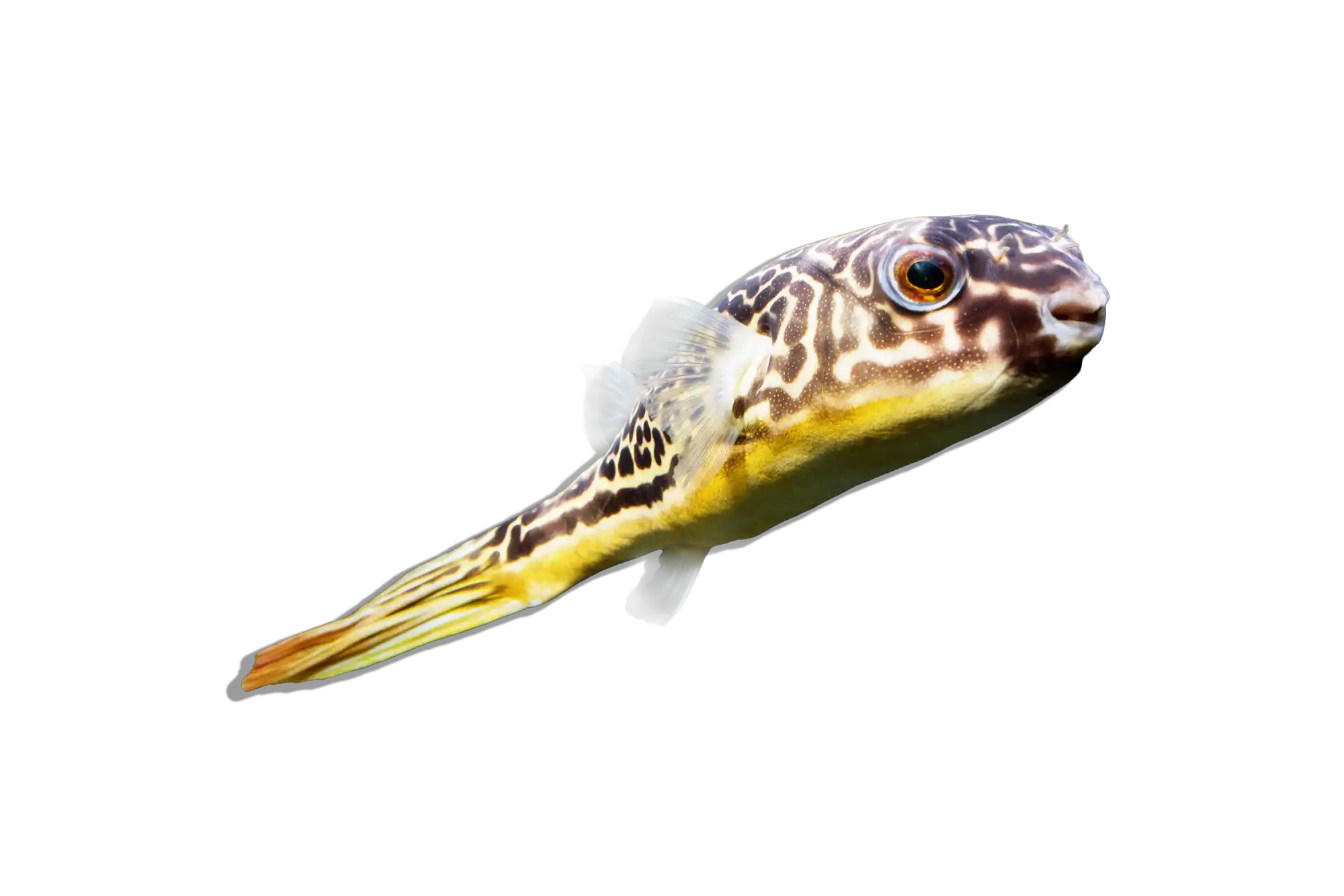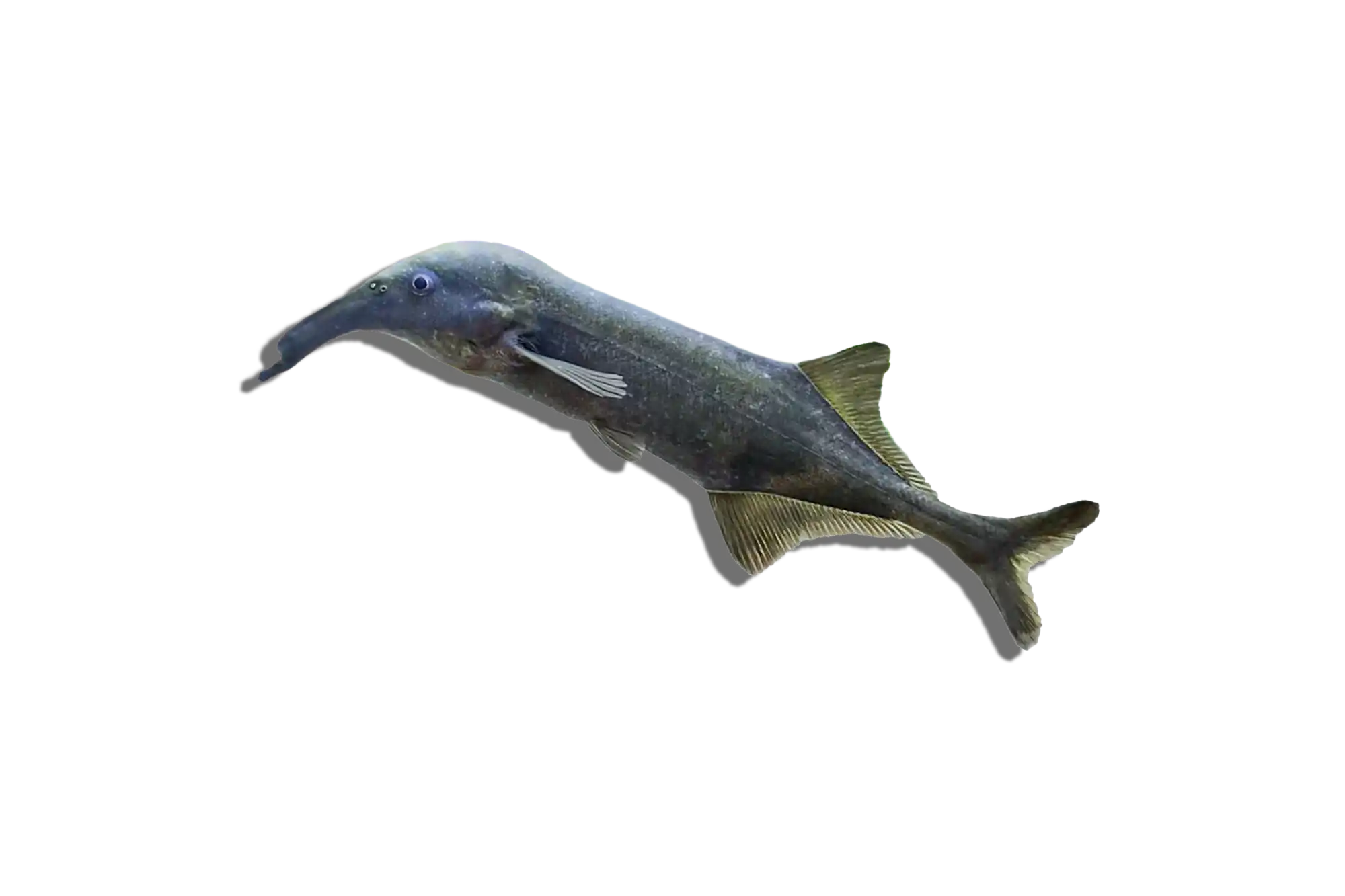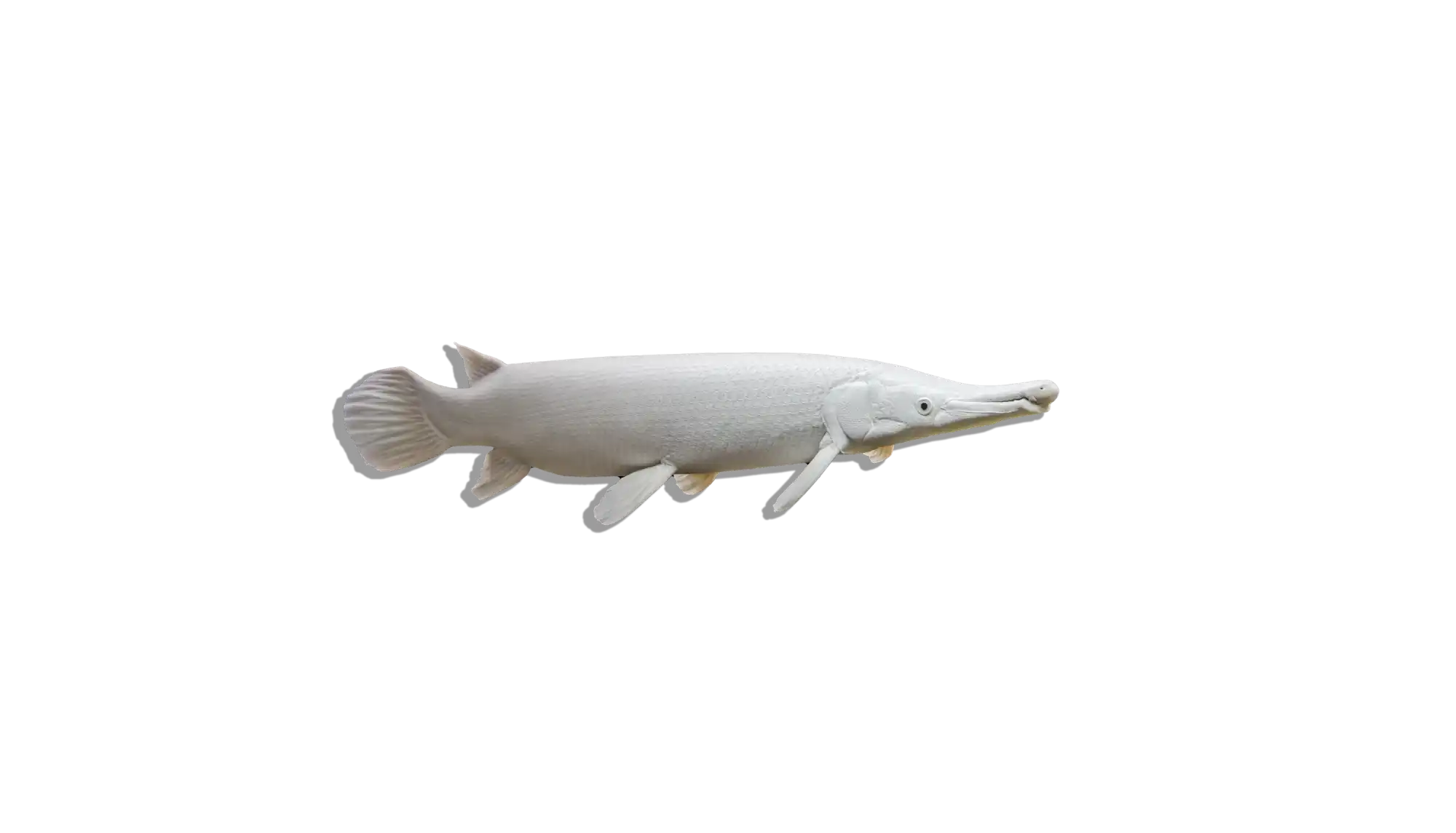Description
Common Name: Convict Julie Cichlid
Scientific Name: Julidochromis regani “Kigoma”
Other Names: Kigoma Julie, Convict Julidochromis
The Convict Julie Cichlid is a striking rock-dwelling cichlid from Lake Tanganyika, known for its elongated body, bold black and yellow banding, and territorial nature. It is one of the largest species in the Julidochromis genus, making it more dominant than smaller relatives. This species forms strong monogamous pairs and exhibits fascinating social and breeding behaviors, making it a popular choice for Tanganyikan aquarium setups.
Habitat and Distribution:
Native to the rocky shorelines of Lake Tanganyika near Kigoma, this species inhabits deepwater zones with numerous crevices and caves. It thrives in clear, highly oxygenated, alkaline waters where it seeks shelter among rock formations to establish and defend its territory.
Size and Lifespan:
The Convict Julie can grow to about 5-6 inches (13-15 cm), making it one of the largest Julidochromis species. With proper care, it has a lifespan of 8-10 years.
Diet and Behavior:
This species is omnivorous, consuming a diet of small invertebrates, biofilm, and algae in the wild. In captivity, their diet should include high-quality cichlid pellets or flakes, frozen or live foods such as brine shrimp, bloodworms, and mysis shrimp, and occasional plant-based foods like spirulina flakes or blanched vegetables. They are territorial and form strong pair bonds, often staying close to their chosen rock crevice. Although not overly aggressive, they will defend their territory, especially during breeding.
Breeding and Reproduction:
Convict Julie Cichlids are cave spawners that form monogamous pairs. To encourage breeding, provide rock crevices and caves for egg-laying and maintain stable water conditions with high oxygen levels. Once eggs are laid inside a cave or crevice, both parents guard them closely. The fry remain hidden for several weeks before gradually exploring the tank. Young fish may continue to stay near their parents, forming a protective group around the breeding site. Fry should be fed finely crushed flakes or baby brine shrimp.
Aquarium Care and Tank Requirements:
A minimum of 40 gallons is recommended for a pair, but a 75+ gallon tank is ideal for a community setup. Their tank should include a fine sand or smooth gravel substrate, rock formations, caves, and tunnels for shelter, strong filtration to maintain water clarity and oxygen levels, moderate to strong water movement to replicate their natural lake conditions, and moderate lighting with shaded areas created by rock structures.
Ideal Tank Mates:
Convict Julies are best kept with other Tanganyikan species that match their temperament. Suitable tank mates include other Julidochromis species (if introduced as juveniles in a large tank), Neolamprologus species such as shell dwellers and rock dwellers, Altolamprologus species, Cyprichromis species for open-water activity, and Tanganyikan Synodontiscatfish. They should not be kept with overly aggressive cichlids or species that require different water conditions.
Difficulty Level:
Intermediate. They are hardy but require stable water conditions, structured territories, and carefully chosen tank mates to avoid excessive aggression.
Water Parameters:
- Temperature: 75-82°F (24-28°C)
- pH: 7.8-9.0
- General Hardness (GH): 10-20 dGH
- Carbonate Hardness (KH): 10-15 dKH
- Ammonia: 0 ppm
- Nitrite: 0 ppm
- Nitrate: <20 ppm (regular water changes required)
Additional Information:
- Convict Julies often form small family groups, with older juveniles assisting in the protection of younger fry.
- They prefer vertical rock structures and will claim narrow crevices as their primary shelter.
- They are known for their ability to live harmoniously with their mate, but introducing new individuals to an established pair can result in aggression.
The Convict Julie Cichlid is a fascinating Tanganyikan species that brings natural rock-dwelling behaviors and an engaging personality to an aquarium. With the right environment, they will thrive and exhibit their unique territorial and breeding instincts.

